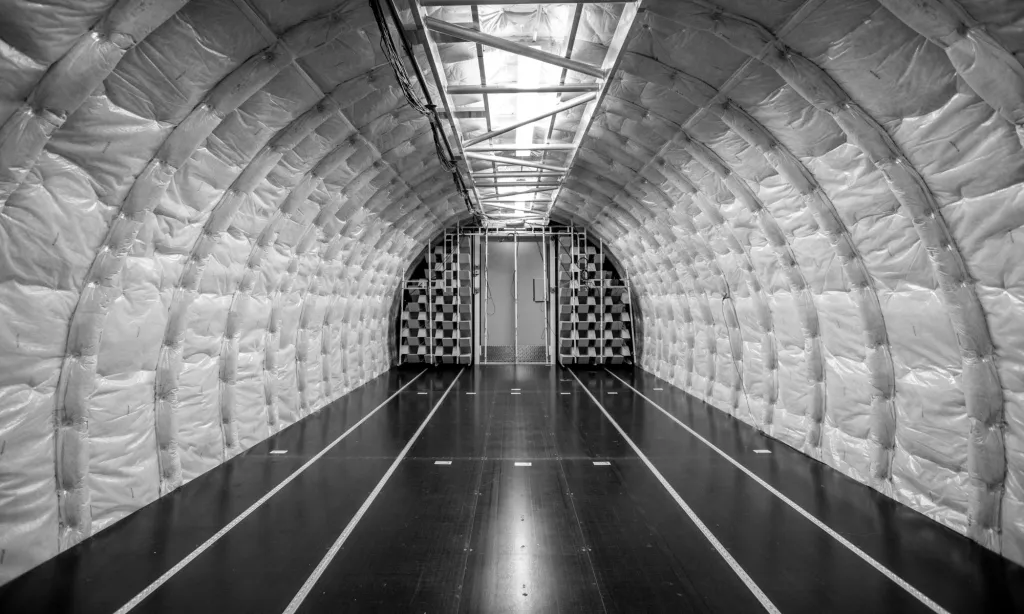Acoustic insulation plays a crucial role in enhancing the comfort and functionality of various spaces, from residential homes to commercial buildings and industrial facilities. The evolution of innovative technologies in acoustic insulation has significantly improved the effectiveness of soundproofing solutions, offering enhanced performance and sustainability. This article explores the latest advancements in acoustic insulation technologies and their applications.
Understanding Acoustic Insulation
What is Acoustic Insulation?
Acoustic insulation involves materials and techniques used to reduce sound transmission between spaces. It aims to minimize noise pollution, improve sound quality, and create a more peaceful and productive environment. https://fdinsulation.com/ is essential in various settings, including residential buildings, offices, schools, hospitals, and entertainment venues.
Importance of Acoustic Insulation
- Noise Reduction: Effective acoustic insulation reduces unwanted noise from external and internal sources, enhancing comfort and privacy.
- Sound Quality: In environments like recording studios and theaters, proper acoustic insulation ensures optimal sound quality.
- Health and Well-being: Reducing noise pollution can positively impact mental and physical health by decreasing stress and improving sleep quality.
Innovative Materials in Acoustic Insulation
Graphene-Based Materials
Graphene, a single layer of carbon atoms arranged in a hexagonal lattice, has exceptional properties that make it an excellent material for acoustic insulation. Its high strength-to-weight ratio and ability to dissipate energy efficiently contribute to its superior soundproofing capabilities.
Aerogels
Aerogels are ultra-lightweight materials with low density and high porosity, making them highly effective at absorbing sound. Their unique structure allows for significant noise reduction while adding minimal weight to structures, making them ideal for various applications, including aerospace and automotive industries.
Sustainable Insulation Materials
With growing environmental concerns, sustainable materials like recycled denim, sheep wool, and cork are gaining popularity in acoustic insulation. These materials offer effective soundproofing properties while being eco-friendly and renewable, contributing to greener building practices.
Advanced Acoustic Insulation Technologies
Smart Acoustic Panels
Smart acoustic panels integrate advanced materials and technology to adapt to changing sound environments. These panels can adjust their sound-absorbing properties based on the type and intensity of noise, providing dynamic and efficient sound control. Applications include offices, classrooms, and open-plan living spaces.
Nano-Scale Insulation
Nanotechnology has paved the way for nano-scale acoustic insulation materials that offer superior soundproofing performance. These materials, engineered at the molecular level, can block and absorb sound waves more effectively than traditional insulation materials. Their compact size also makes them suitable for applications where space is limited.
Active Noise Control (ANC)
Active Noise Control (ANC) technology involves using sound waves to cancel out unwanted noise. This technology, commonly used in noise-canceling headphones, is now being applied to acoustic insulation in buildings. ANC systems use microphones and speakers to detect and counteract noise, providing a more effective solution than passive insulation alone.
Applications of Innovative Acoustic Insulation Technologies
Residential Buildings
Innovative acoustic insulation technologies are transforming residential spaces by providing more effective noise reduction and improved living conditions. Smart acoustic panels, for example, can enhance the comfort of open-plan homes by adapting to different noise levels throughout the day.
Commercial and Office Spaces
In commercial settings, such as offices and coworking spaces, effective acoustic insulation is essential for productivity and privacy. Advanced materials like graphene-based insulation and ANC systems can create quieter, more focused work environments.
Industrial and Manufacturing Facilities
Noise pollution in industrial settings can impact worker health and safety. Innovative acoustic insulation materials, such as aerogels and nano-scale insulation, can significantly reduce noise levels in manufacturing plants and industrial facilities, creating a safer and more comfortable working environment.
Entertainment Venues
Acoustic insulation is critical in theaters, concert halls, and recording studios to ensure optimal sound quality. Advanced technologies like smart acoustic panels and nano-scale insulation materials can enhance the acoustics of these venues, providing better sound experiences for audiences and performers.
Future Trends in Acoustic Insulation
Integration with Building Automation
The future of acoustic insulation lies in its integration with building automation systems. Smart buildings equipped with sensors and automated controls can optimize acoustic insulation in real-time, adjusting to changing noise levels and improving energy efficiency.
Advancements in Sustainable Materials
As the demand for sustainable building practices grows, the development of eco-friendly acoustic insulation materials will continue to advance. Innovations in biocomposites, recycled materials, and other sustainable options will play a significant role in the future of acoustic insulation.
Enhanced Computational Design
Computational design and modeling tools are revolutionizing the way acoustic insulation is planned and implemented. These tools allow for precise simulation and optimization of acoustic performance, ensuring the most effective and efficient soundproofing solutions.
Conclusion
Innovative technologies in acoustic insulation are transforming the way we manage sound in various environments. From advanced materials like graphene and aerogels to smart panels and active noise control systems, these innovations offer superior performance and sustainability. As technology continues to evolve, the future of acoustic insulation promises even more effective and environmentally friendly solutions, enhancing our living and working spaces for years to come.
